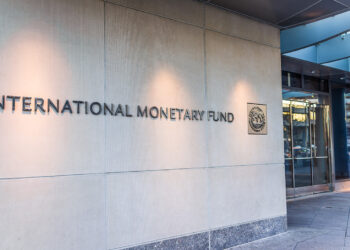Speaking at a SuperRatings and Lonsec event last week, Mr Costello argued that default super should be managed by a national safety-net administrator similar to the Canadian Pension Plan Investment Board (CPPIB).
Mr Costello, who is the chairman of the Future Fund, made the comments in his own capacity.
He argued that letting the government manage default superannuation contributions would be a vast improvement on the current arrangement, under which industry funds and retail funds compete for default super.
“Instead of the government arbitrating between industry funds and private funds, there is a fair argument that this compulsory payment should be allocated to a national safety-net administrator – let us call it the Super Guarantee Agency – a not-for-profit agency,” Mr Costello said
The hypothetical Super Guarantee Agency could either set up its own CPPIB-like investment board or contract it out to the Future Fund, Mr Costello said.
“There would be huge economies of scale. It would end the fight between the industry and the profit sector over who gets the benefit of the default funds,” he said.
“Neither sector has been able to attract the money voluntarily. It exists by reason of government fiat. The government has decided it should go into the super system – it could show some interest in managing it in a cost-efficient way.”
The umbrella lobby group for the superannuation industry, the Association of Superannuation Funds of Australia (ASFA), was quick to dismiss the idea as “nationalising superannuation” and putting retirement savings “at risk”.
ASFA chief executive Martin Fahy said, “In the context of the broader public debate around the efficiency and competitiveness of the superannuation system, it is almost inconceivable that anyone would countenance a government monopoly delivering the best retirement outcomes for Australians.
“What is being proposed is in essence the nationalisation of private, individual superannuation savings.
“The Future Fund effectively operates as the Australian government’s wholesale investment manager. However, it lacks the required governance framework and administrative capabilities needed for it to operate in a superannuation context.”
Furthermore, the plan would put current group insurance arrangements in jeopardy, Mr Fahy said.
“Mr Costello’s proposal would also require the government to set up and operate a centralised facility to undertake administration functions for the government-run fund. Effectively, this would see administration services for many member accounts transferred from private sector operators to a government administrator,” he said.
“Entrusting administration to a government-run entity would reverse significant efficiency gains delivered through the government’s SuperStream program, which sets very high standards for private administrators.”
Mr Fahy added that the $900 million the super industry has invested to implement SuperStream would be “wasted” under Mr Costello’s proposal.
“It would also require faith that government could deliver more efficient, effective and reliable administration services than the private sector,” he said.
“The reality is that transferring administration functions to a government body would create single-point-of-failure risk for members.”







